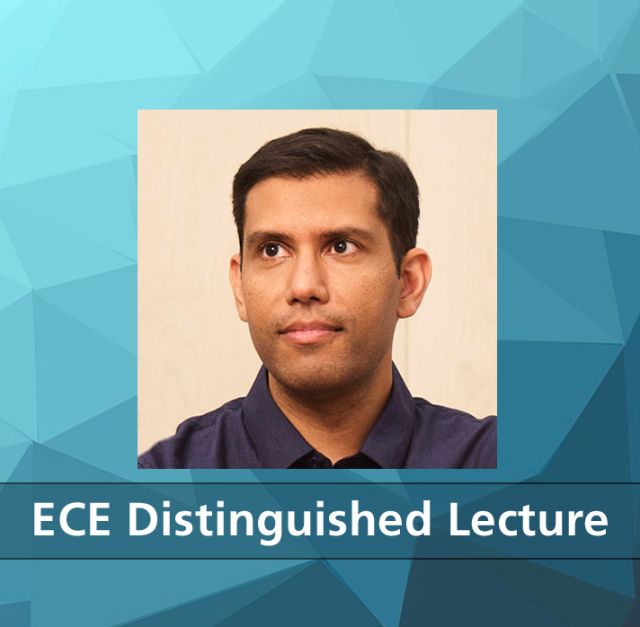ECE Seminar Series – Feb 23 (Fri) @ 2:00pm: “A Carative Approach to AI Governance,” Kush Varshney, Distinguished Researcher, IBM Research

Come at 1:00p for Cookies, Coffee and Conversation!
DISTINGUISHED LECTURE at the ECE SEMINAR SERIES
Abstract
In recent times, we often hear a call for the governance of AI systems, but what does that really mean? In this talk, I will first adopt a control theory perspective to explain governance that determines the reference input via value alignment, data scientists acting as the controller to meet the values in a machine learning system, and facts captured in transparent documentation as the feedback signal. I will then adopt a nursing theory perspective to explain how the control theory perspective lacks caring and the need for a carative approach that starts with the real-world problem as experienced by the most vulnerable people. I will conclude with an example of a project on using machine learning to evaluate applicants for home solar panel systems in rural India as well as a discussion of governing large language models.
Bio
Kush R. Varshney was born in Syracuse, New York in 1982. He received the B.S. degree (magna cum laude) in electrical and computer engineering with honors from Cornell University, Ithaca, New York, in 2004. He received the S.M. degree in 2006 and the Ph.D. degree in 2010, both in electrical engineering and computer science from the Massachusetts Institute of Technology (MIT), Cambridge. While at MIT, he was a National Science Foundation Graduate Research Fellow.
Dr. Varshney is a distinguished research scientist and senior manager with IBM Research at the Thomas J. Watson Research Center, Yorktown Heights, NY, where he heads the Human-Centered Artificial Intelligence and Trustworthy Machine Intelligence teams. He was a visiting scientist at IBM Research - Africa, Nairobi, Kenya in 2019. He is the founding co-director of the IBM Science for Social Good initiative. He applies data science and predictive analytics to human capital management, healthcare, olfaction, computational creativity, public affairs, international development, and algorithmic fairness, which has led to the Extraordinary IBM Research Technical Accomplishment for contributions to workforce innovation and enterprise transformation, and IBM Corporate Technical Awards for Trustworthy AI and for AI-Powered Employee Journey.
Hosted by: The ECE Seminar Series
Submitted by: Haewon Jeong <haewon@ucsb.edu>